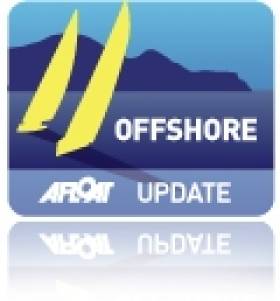Displaying items by tag: mathews
Mathews and Kenefick Onboard Germany's 'AOC Rockall' for Middle Sea Race
Although there are no Irish boats at least two Irish crew are participating in Saturday's record breaking Rolex Middle Sea Race from Malta.
Dun Laoghaire navigator Brian Mathews, who narrowly misseed out on an international victory in the Dragon fleet with Martin Byrne in Cannes last month is sailing with Crosshaven's David Kenefick on board the Ex-'Rosie' 36 footer, now the German Registered AOC Rockall racing in IRC class four.
A record has been broken even before the start of the Race say the organisers. Days before final registration for this year's event, entries have risen to a record breaking 81 and there are still a few days to go before the last entry can be accepted.
New entries from Italy, Serbia, Slovenia and the UK have pushed the numbers up to 80, three more than the previous record of 77 in 2008.
"We can accept late entries up until 17th October and we do expect one or two more, said Georges Bonello Dupuis, Commodore of the Royal Malta Yacht Club. As it is, entries for this year are incredible and we are really looking forward to seeing them all berthed outside the Club; the place will be buzzing," he added.
A handful of boats are here, including previous RMSR line honours and overall winner, Alegre together with the back to back winner of the Rolex Fastnet, Ran 2.
Other arrivals include the UK Swan 57 Yellowdrama who'll be fighting for the new Nautor Swan Cup, Echo, Doppelbock (Germany & UK) and Filando and Tyke from Italy. Filando's 14-man crew come to Malta for the first time to take part in a race that they consider "the best offshore regatta in the Mediterranean."
Many of the entries will arrive this weekend, including the brand new 85 foot Nautor Swan ,Berenice from Italy. While good weather over the weekend will ease the passage of arriving yachts, Mr Bonello Dupuis cautioned, "I expect one or two might have problems making their way down to Malta, but fingers crossed that everyone arrives safely; they will certainly receive a warm welcome."
The Rolex Middle Sea Race is organised by the Royal Malta Yacht Club in association with the Royal Ocean Racing Club (RORC) and has been sponsored by Rolex since 2002.
























































